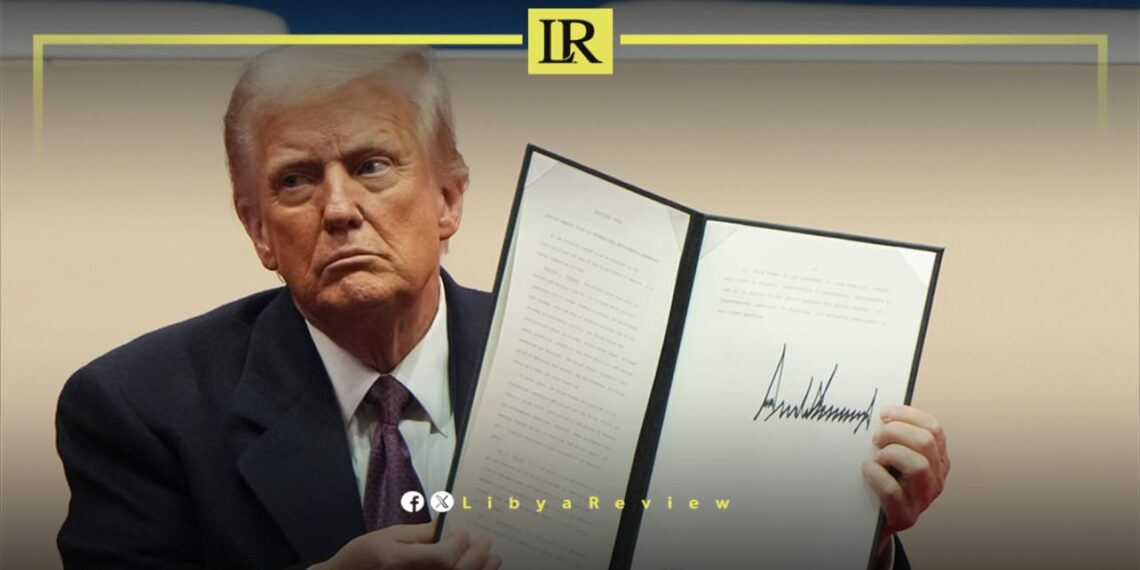As of 8:00 AM Monday (Libya time) — 12:01 AM Eastern U.S. time — a new executive order signed by former U.S. President Donald Trump has officially gone into effect, barring nationals from 12 countries, including Libya, from entering the United States.
The White House announced the measure last Wednesday, citing a comprehensive national security review. The order targets Afghanistan, Burma, Chad, the Democratic Republic of Congo, Equatorial Guinea, Eritrea, Haiti, Iran, Libya, Somalia, Sudan, and Yemen, labeling them as posing significant security risks due to terrorism, poor identity verification systems, or lack of cooperation with U.S. authorities.
Why Libya?
In Libya’s case, the White House justified the full suspension of travel by citing the absence of a central, reliable passport authority and the country’s history of terrorist activity. This lack of governmental control, it argued, undermines the ability to screen travelers effectively, thus posing a high security threat.
Exceptions Apply
The ban includes notable exemptions:
Holders of valid visas or U.S. green cards
Dual nationals traveling on a passport from a non-restricted country
Diplomats, government officials, and NATO personnel
Special visa categories, such as athletes, adoptees, direct family immigration, and persecuted minorities
The order also permits entry for individuals whose travel is deemed to serve U.S. national interests.
Broader Restrictions
The executive action goes further, placing partial visa restrictions on citizens from Burundi, Cuba, Laos, Sierra Leone, Togo, Turkmenistan, and Venezuela, citing similar concerns.
Implementation Orders Issued
According to a diplomatic cable signed by U.S. Secretary of State Marco Rubio, consular officials have been instructed to:
Continue processing visa applications from affected countries
Approve and issue visas for qualified applicants
Cancel pending visas issued before June 9 unless the applicant qualifies for an exemption
The guidance, obtained by CNN, details how embassies should evaluate visa requests and process exceptions, particularly in cases involving family reunification or humanitarian grounds.


